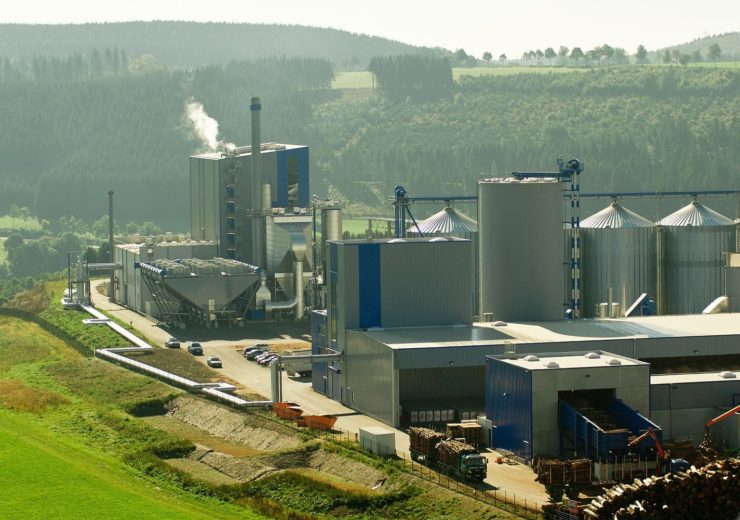The sale is part of innogy’s strategy, under which the company no longer considers biomass as a growth area

innogy’s pellet plant and biomass plant in Erndtebrück, Germany (Credit: innogy.)
German energy company E.ON’s subsidiary innogy has sold its biomass combined heat and power (CHP) plant and pellet production facility in Erndtebrück, Germany to Austria-based Cycleenergy, for an undisclosed amount.
The power plant and the processing plant at Erndtebrück, are operated by innogy’s subsidiary NRW Pellets. The sale agreement was signed last month and the transfer of ownership and employees took place on 27 January, innogy said.
Cycleenergy operations and technology head Christoph Bruckner said: “The dedicated team in Erndtebrück has managed in the past few years to create a good basis on which to secure an important contribution towards the necessary transformation of the European energy industry into a sustainable one.”
Cycleenergy operates three biomass and two pellet production plants
Cycleenergy already operates three biomass power plans and two pellet production facilities in Austria. The company plans, finances and builds decentralised energy solutions with base-load capabilities in Austria and neighbouring countries.
Innogy biomass Germany head and NRW Pellets managing director Sandra Silva Riaño said: “I’m happy to be passing our two plants into competent hands. In taking this step, we have secured the long-term operation of both plants and the jobs. This is an important signal to send out to the region and our customers – and moreover, to our employees there.
“I’d like to take this opportunity to express my sincere thanks to them. Their great dedication is what has enabled us to continuously improve production processes at both plants in recent years and position ourselves on the market as a reliable and quality-focused pellet manufacturer. We have now created a solid basis for the future under the umbrella of Cycleenergy.”
Innogy also stated that the two plants at Siegen-Wittgenstein location were sold as part of a strategic realignment process. As part of the realignment, the company had decided that biomass no longer counts as a strategic growth area.
The company had sold biomass plants in Kehl and Goch in Germany and Enna in Italy.
